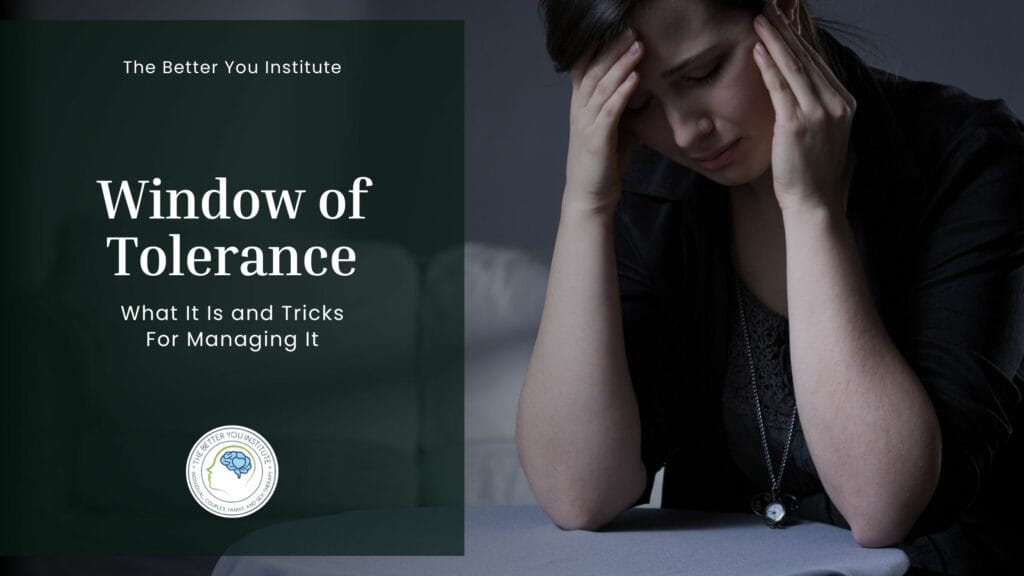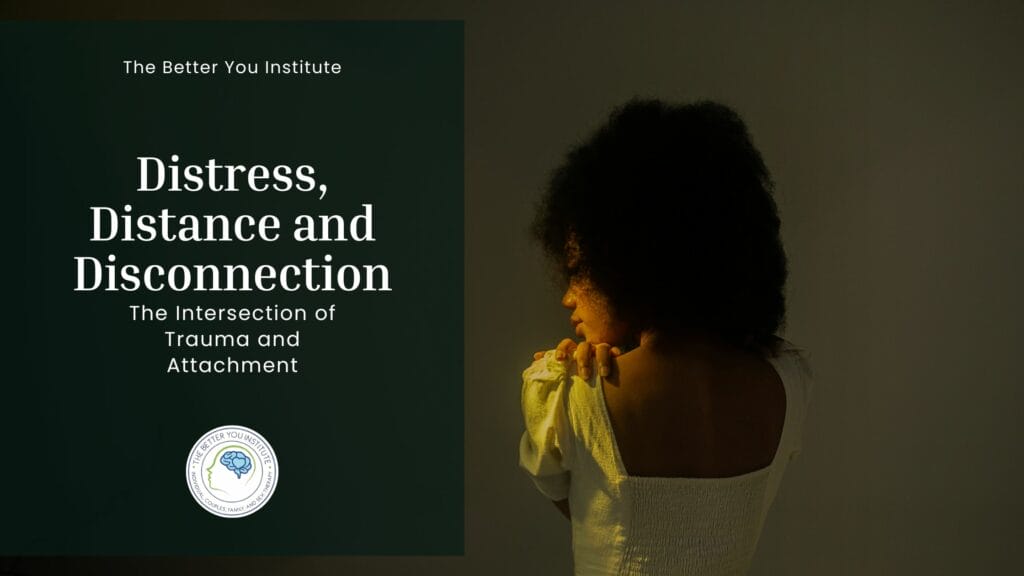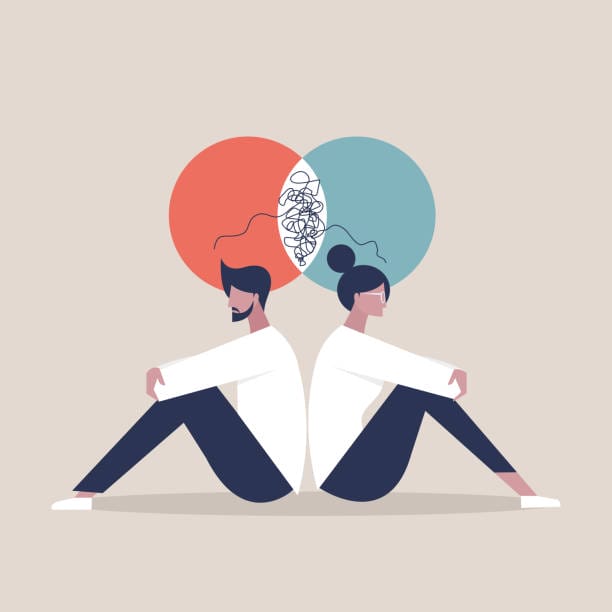You’ve just opened your eyes. It’s still sort of dark out, the sun is just beginning to peek out in the sky. Your bedroom is a little chilly, but you’re safe under the covers. You take a deep breath in, stretch your arms out toward the ceiling, and breathe out. The only thing on your mind is how comfortable and relaxed you feel after a full night of sleep.
For a lot of us, this sounds like a fantasy. We wake to the sound of an alarm, a pet, or traffic. There’s a crick in our neck from spending the previous day at work and there isn’t just one thing on our mind. We may be plagued with thoughts about our partner(s), our parents, our kids, our pets, the news, that crick in our neck, or how much we need a break.
According to the National Sleep Foundation’s 2020 Sleep in America Poll, more than half of Americans report feeling daytime sleepiness 3-7 days per week. This sleepiness comes along with a whole set of emotional and cognitive disturbances including irritability, sadness, and confusion. Not only is this putting individuals at risk, but it’s also a matter of public health. People who struggle with insomnia, are more likely to have work-related accidents than those who sleep well. Over 6,000 fatal car crashes each year are caused by drowsy driving. Clearly, this is an issue worth looking into!
Table of Contents
Why Do We Need To Sleep?
Until recently, we knew that we needed sleep but we didn’t know why. Now, thanks to a study conducted by a team of researchers at Boston University, we have a better idea. As we go about our day, our brains are working very hard to keep us going – creating memories, making decisions, etc. There’s a byproduct from this called beta-amyloid which is a sort of plaque that, just like the plaque in our arteries or on our teeth, can build up and become dangerous.
The research from Boston University offers us some hope, though. By observing the brains of sleeping individuals through an fMRI (a big machine that looks at blood flow), the researchers found that during sleep, a fluid called cerebrospinal fluid (CSF) flushes through the brain, washing away that plaque.
What Sleep Means For Our Wellbeing:
 When we’re able to get rejuvenating sleep, we’re able to function with more ease. We all know what it’s like to feel tired: our limbs feel heavier and our minds feel slower. Making decisions takes longer and can feel frustrating when we’re in need of more sleep. Indeed, your access to information or memories takes longer and isn’t as clear when you’re tired. When we’ve given our brain its full dose of CSF, though, we can feel more nimble and confident with our choices.
When we’re able to get rejuvenating sleep, we’re able to function with more ease. We all know what it’s like to feel tired: our limbs feel heavier and our minds feel slower. Making decisions takes longer and can feel frustrating when we’re in need of more sleep. Indeed, your access to information or memories takes longer and isn’t as clear when you’re tired. When we’ve given our brain its full dose of CSF, though, we can feel more nimble and confident with our choices.
Sleeping gives your brain a chance to boost its levels of dopamine and norepinephrine, which helps make you feel happy, alert, and attentive. The natural processes in our body such as breathing and digestion don’t take as much effort when we’re well-rested. We are more at ease and capable of handling whatever life may throw at us (e.g., stressful situations, grief and loss, having to change last minute). It also means we have more energy to get through our work, eat a nice meal, and actually enjoy spending time doing hobbies or being with loved ones. Overall, we’re more adaptable and ready to take on life’s challenges.
What May Be Causing Sleep Issues:
Have you ever heard of Pavlov’s dogs? In the late 19th century, a Russian researcher named Ivan Pavlov discovered that by repeatedly ringing a bell and then feeding dogs, eventually the dogs would have a physiological response to the bell even when there was no food present. This seemingly simple experiment led to one of the most important discoveries about behavior: conditioning. Conditioning is the way our bodies and brains learn through repetition.
Sleep can be a problem for people in a lot of ways. Some of us have difficulty with falling asleep while others struggle to stay asleep. The onset of these difficulties could be because of:
- Stress
- Work, school, families, relationships, and the world around us contribute to our mental state. Being stressed increases our alertness, making it difficult to slow down and quiet our thoughts.
- Sleep patterns
- Irregular habits of sleeping, like naps or different shifts at work, confuse our body’s internal clock. This is called a circadian rhythm, and I’ll address it more below.
- Stimulation
- Texting, playing video games, watching T.V., or working into the late evening keeps the mind active. The blue light from screens mimics daylight and limits our bodies’ production of melatonin, the hormone that regulates our sleep-wake cycle.
- Bed associations
- Using the bed for activities that don’t induce relaxation can make it difficult to rest because the brain has learned to associate that space with activity like work or entertainment.
- Caffeine or substances, especially stimulants such as nicotine
- Grief and Loss
- Relationships
- Environmental sounds
- Running thoughts/imagination
What Happens When We Don’t Get Sleep: How it Impacts Our Daily Life; Long-Term Issues
 Many people find that when their sleep has been disrupted, they are more likely to make more mistakes at work, feel clumsy, and experience difficulty focusing. Our stomachs have a hard time without sleep, too. Because our internal bodily processes take longer when we’re not well-rested, we might feel bloated and uncomfortable when we haven’t had decent shut-eye. We’re also more likely to be irritable and/or short-tempered without enough sleep. This can impact our ability to interact with the people around us.
Many people find that when their sleep has been disrupted, they are more likely to make more mistakes at work, feel clumsy, and experience difficulty focusing. Our stomachs have a hard time without sleep, too. Because our internal bodily processes take longer when we’re not well-rested, we might feel bloated and uncomfortable when we haven’t had decent shut-eye. We’re also more likely to be irritable and/or short-tempered without enough sleep. This can impact our ability to interact with the people around us.
Interrupted and inconsistent sleep over a long period of time causes considerable dangers to our physical health, as well. These dangers include hypertension, high cholesterol, an inability to maintain consistent body weight, increased risk for type 2 diabetes, and decreased fertility. These are conditions we’d want to avoid!
If you’re reading this and thinking the worst, don’t worry! The effects of interrupted and inconsistent rest can be improved over time with improved sleep. Here’s some information on how to do so below.
How to Get Consistent Sleep and Improve Sleep
Our body and brain function in a circadian rhythm. When you sleep train a baby, you are activating their circadian rhythm. It’s not uncommon to get out of whack as you go through life (late-night studying/finishing a project, early morning to catch a flight, late-night feedings, dealing with pets, etc). You may need to retrain your circadian rhythm. We can train our bodies and brains to get used to bedtime (i.e., condition our bodies) by engaging in relaxing activities during the hour or two before we go to sleep. This can include:
-
-
Limiting yourself to calm activities prior to trying to fall asleep
- Having a cup of herbal tea (chamomile is a great choice, stay away from caffeine)
- Lighting a nice candle/putting a calming essential oil in your diffuser. Lavender is very soothing.
- Read something that allows your brain to turn off (fiction book vs. work documents)
- Pray
- Stretch
- Listen to calming music or sounds
- Do a skincare routine
- Write in your diary or start a gratitude journal
- Take a bath (be sure you give your body enough time to cool down. Research shows that 67 degrees is the best sleeping temperature.)
- Meditation is also a great way to connect the body and mind in a state of peace. Check out some of these resources for bedtime meditation techniques:
- The podcast Sleep Cove.
- Spotify has lots of soundscapes available so you can drift off to sleep with the soothing sounds of distant thunderstorms, a sea breeze, or babbling brooks.
- There are tons of apps that offer mindfulness exercises to help us relax. A couple of my favorites are Calm and Headspace.
- Here’s a sample of a basic meditation script (written by Melissa Moon Nikhila) you could try before bed:
-
-
-
-
-
- Start by lying flat on your back with your hands by your side and just let the music wash over you for a few minutes. We are now going to begin by focusing on our breath. I want you to take a deep breath and breath from the deepest part of your body right from your diaphragm and fill your lungs so that you can fill them inflating and causing your stomach to rise and then hold for a few seconds and then slowly ever so slowly let that breath escape through your lips gently letting the air escape. Empty your lungs by blowing the very last drop of air out of the lungs and then just pause for a couple of seconds. Repeat, again slowly filling your lungs and concentrating on inflating your lungs with clean fresh air. When you can inhale no more air, just hold the air-filled lungs for a few seconds before gently ever so gently letting the air escape. Now repeat these deep breaths at least 5 more times. Ideally, if you can focus on the mechanical exercise of breathing for as long as you can.
-
-
-
-
-
-
-
-
-
-
- Find the full meditation here: https://www.meditatia.com/guided-meditation-sleep.html
-
-
-
-
-
-
Anything that makes you feel comfy-cozy so your brain knows it’s almost time to turn in.
-
 Establish a bedtime routine. Remember how we learn through repetition? Repeating a routine at bedtime will teach your mind and body when it’s time to slow down.
Establish a bedtime routine. Remember how we learn through repetition? Repeating a routine at bedtime will teach your mind and body when it’s time to slow down.- Do everything in the same order each night.
- Get water, go to the bathroom, brush your teeth, pick out your outfit for the next day, do a calming activity with a light on, turn the light off at the same time each night, etc. all in the same order
- Get your family or pet on the same schedule and routine to help hold you accountable
- Do everything in the same order each night.
-
Avoid stimulation
- If you can avoid using your phone, computer, or television before bedtime, it will be easier to slow down your mind. Try setting a timer on your devices to turn off. Use that as a signal to do an activity listed above.
- Devices such as phones or computers sometimes have the option to choose “night mode” which decreases the blue light emitted from the screen. It can be helpful to use this function in the evening, especially if you cannot turn off your devices close to bedtime.
- Did you know it can take up to twelve hours for the caffeine from a cup of coffee to work its way through the body? That means if you want better rest, the afternoon java boost will probably get in the way. If you need a midday pick-me-up, try a snack with some protein and carbohydrates like hummus on crackers or peanut butter with banana.
- Intense conversations may get your mind racing and prevent you from sleeping. If you are able to, limit these types of conversations before bedtime.
- Reflecting on the things you didn’t do well on that day might stir up anxious feelings. Practicing mindfulness can help reduce these thoughts and the judgment surrounding your thoughts.
- Avoid reading or listening to the news when it’s time to rest.
- Try not to work right before you try to sleep. Instead, give yourself at least an hour prior to bedtime that you decompress from work/school-related things.
-
Sleep consistently
- If your schedule allows, try going to bed and waking up at the same time each day, including weekends. This will help you fall asleep more easily and wake up more refreshed. Studies have shown that if you miss just 1 hour of sleep, you go into sleep debt and it takes at least 4 days to recover. That means sleeping in on the weekend doesn’t actually help with recovering from the workweek. Our bodies rely on consistent routines to maintain the circadian rhythm (an internal cycle that carries out our bodily functions). Remember that plaque? If our sleep is inconsistent, then our brains won’t be regularly cleaned.
- Though ideal, 7-8 hours of sleep isn’t possible for everyone. Consistency, however, is more important than quantity. So even if you’re only getting 5 hours of sleep, as long as it’s the same 5 hours every night, you should be okay.
-
Set Boundaries
- If you can sense an intense conversation coming up with your roommate or sleep partner, set limits on the timing of it or how far it goes.
- During the week, set limits with yourself that you only go out for happy hour and are home by a certain hour, rather than staying out until late at night and ruining your sleep schedule.
- Say “no” to projects you know will make you burn the midnight oil and ruin your sleep schedule.
- Manage your time, which sometimes means saying no to things so that you can prioritize other things (like sleep).
-
Bedroom Care
- Make your bedroom a sanctuary you feel good about sleeping in
- How does it smell? Like lavender or old gym shorts?
- Is your cat’s kitty litter in there? Can it be moved somewhere else?
- Do you have a sidelight that has calming, dim light rather than a bright overhead light?
- Paint the walls or have artwork that is calming or enjoyable to your eyes
- Wash your sheets regularly
- Make your bed so the covers and sheets are comfortable each time you get in
- Buy comfortable bed accessories: pillows, sheets, comforter, etc.
- Take the TV out of the bedroom, yes, you read that right! Even if it has a sleep timer!
- Do not allow animals to sleep in the bed with you if they are disruptive to your sleep
- Buy blinds or curtains and keep them closed when you are trying to sleep
- Invest in a sound machine/box fan if you live on a noisy street or are a 3rd shift worker
- Have an infuser with calming essential oils going prior to you coming in to go to bed
- Invest in a ceiling fan if you sleep hot
- Invest in a space heater or heated blanket if you sleep cold
- Use your bed for sleep only
- If you have to do work in your bedroom, try to designate a space for the work that is not in your bed
- Do not eat in bed
- Do not watch TV (or shows/movies on your computer) or play video games in your bed
- Buy a clock that is easy to sleep with (e.g., has adjustable brightness, does not tick)
- Keep it clean/organized so your brain doesn’t feel cluttered when you walk into a cluttered bedroom
- Have what you need in or on your nightstand or close to your bed (water, chapstick, tissues, chargers, alarm clock, etc.)
- Make your bedroom a sanctuary you feel good about sleeping in
-
Sleep comfortably
- As stated above – buy comfortable sleep accessories
- Replace your mattress as needed
- Wear comfortable pajamas
- Sleep naked (research shows sleeping naked produces the healthiest sleep)
- Cuddle with your partner
- Set a boundary with your partner that you want space while you sleep
- Sleep on the side of the bed that feels right to you
- Buy a leg pillow to keep your back straight if you’re a side sleeper
- Sleep on your back, research shows this is the best position for good sleep
-
Avoid becoming reliant on melatonin or over-the-counter medication that induces sleep.
- One-time uses are fine (think, if you have an exam that you know you’re stressed about and will stay up and ruminate, if you just had an argument with a loved one, if you’re going through a loss, etc.)
-
Good sleep starts outside of the bedroom
- If you’re stressed or have a lot on your mind –
- Call a friend and process it
- Go to therapy
- Journal
- Practice mindfulness/meditation
- Get physical (dance, go to the gym, ride your bike, swim, whatever your body will allow you to do, just move it)
- Manage your time and organizing your day to allow for you to implement your bedtime and full sleep routine
- Work on your relationships before 9p
- Learn the power of “no”
- Say yes to what makes you happy and brings you joy, rather than those things that you feel obligated to or bring you stress or grief
- Decrease caffeine or alcohol intake
- Eat a healthy diet
- Drink enough water throughout your day (limit how much you drink at night so you’re not waking up in the middle of the night)
- Limit naps
- If you’re stressed or have a lot on your mind –
Mental Health is About Maintenance:
Practicing consistent sleep habits like the ones listed above will help you in the long run, but some of us have done it all and still struggle. It’s not uncommon for people who live with depression or anxiety to lie awake all night wishing to sleep or sleep all day, unable to go about their business. Though difficulties with sleep could be a result of medical concern and should be addressed with your physician, it can also be a part of struggling with your mental health.
We encourage you to become a participant in a sleep study or get evaluated by a physician if you’ve exhausted the above lists to no avail. However, if your sleeping habits are causing distress and you haven’t tried everything, trained psychotherapists can help you to make behavioral adjustments and process experiences that might keep your minds from feeling calm. We are here to help, please reach out at any time to start working toward better sleep. Call us at 267-495-4951, or use the form below!


 Establish a bedtime routine. Remember how we learn through repetition? Repeating a routine at bedtime will teach your mind and body when it’s time to slow down.
Establish a bedtime routine. Remember how we learn through repetition? Repeating a routine at bedtime will teach your mind and body when it’s time to slow down.




